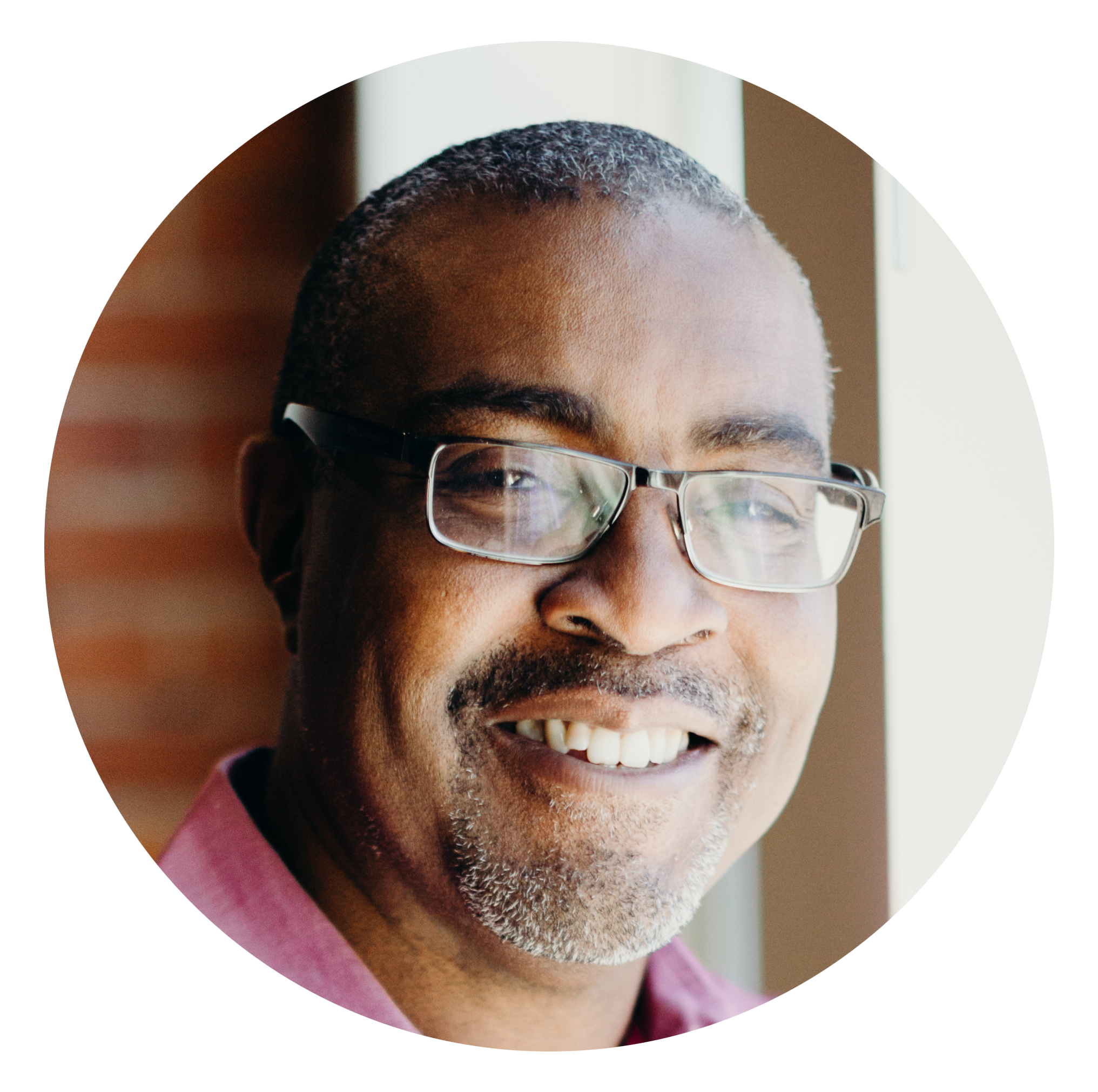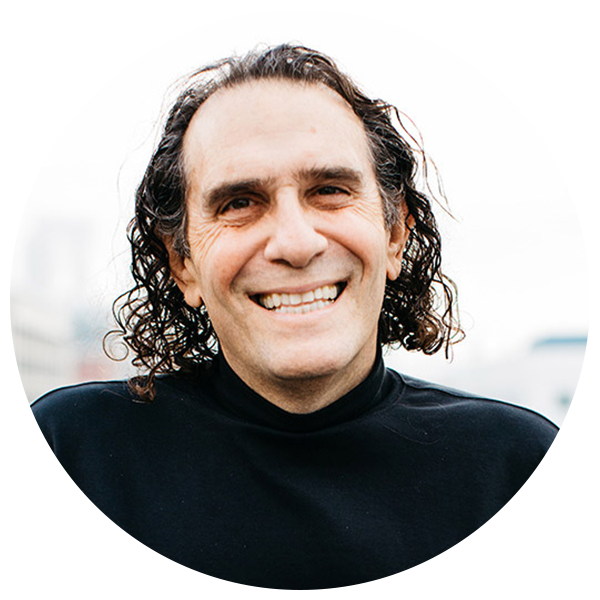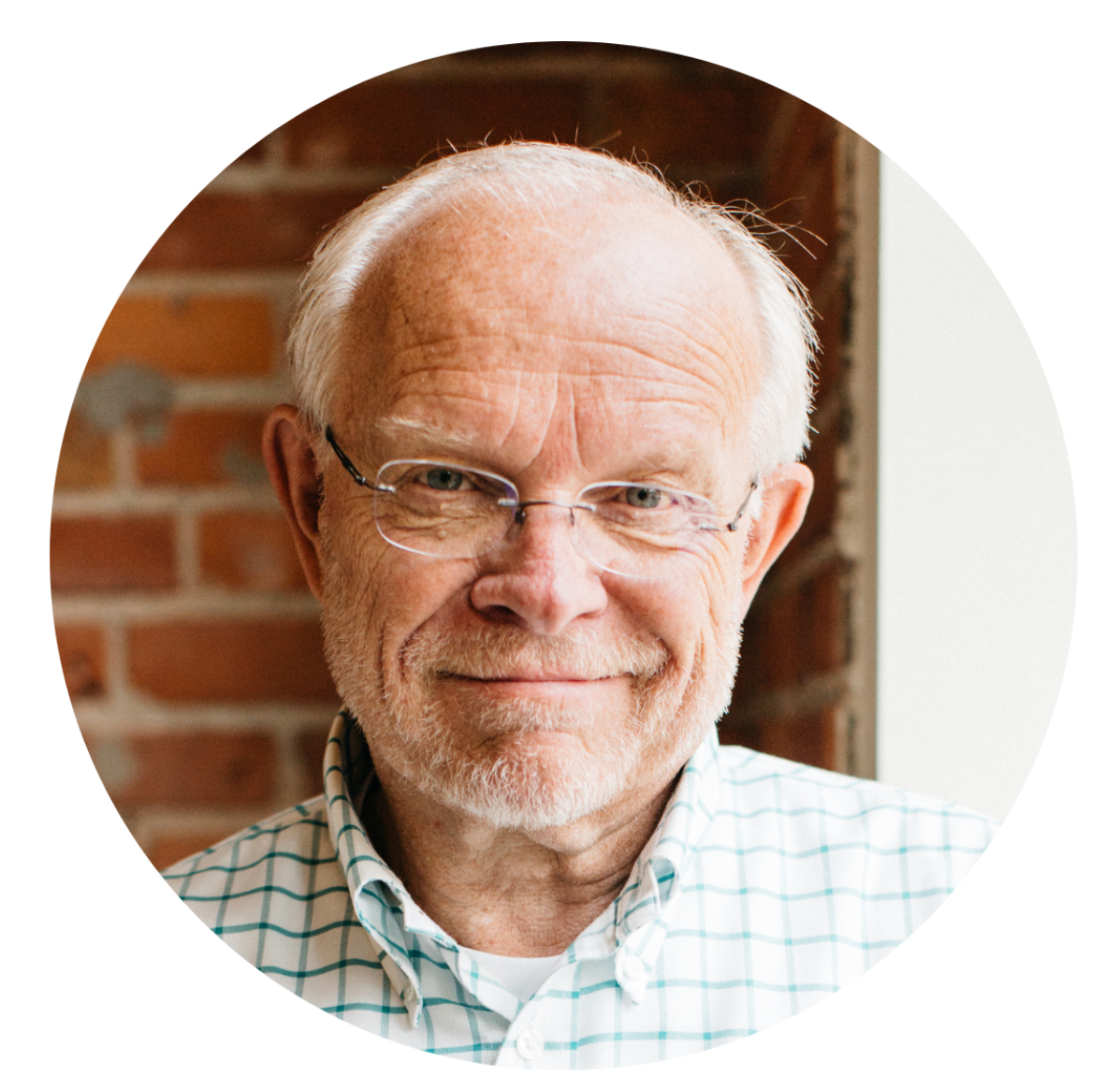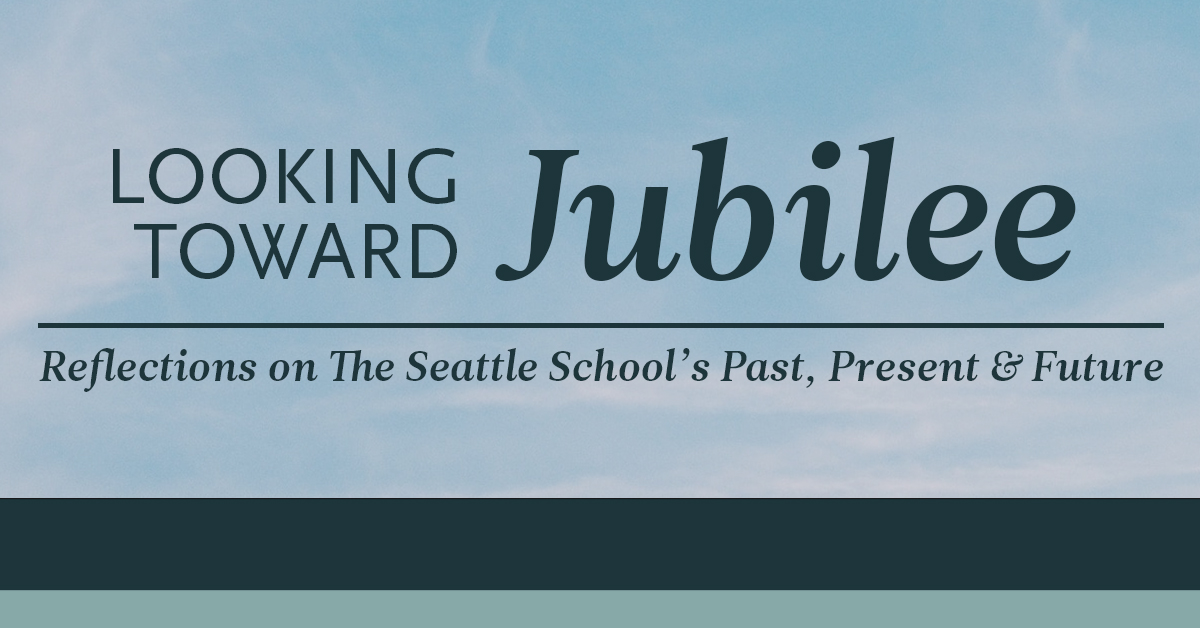In celebration of our 25th year as an institution, Dr. J. Derek McNeil, President and Provost of The Seattle School of Theology & Psychology, invited Dr. Dan Allender, founding President and Professor of Counseling Psychology, and Dr. Keith Anderson, President Emeritus, into a conversation on the past, present, and future of our calling and community. Listen as they describe the original hopes and dreams from our founding days and the continuing values of engaging in discourse, scripture, and stories. This is the first part of the conversation that we will be sharing over the next few weeks in this podcast miniseries as we celebrate and reflect by looking back and looking toward Jubilee to imagine the next 25 years.
Introducing our host for this miniseries:

Dr. J. Derek McNeil started at The Seattle School in 2010 as Senior Vice President of Academic Affairs before becoming the fourth President of The Seattle School in 2019. Since joining the institution’s leadership team, Dr. McNeil has been integral to our achievement of regional accreditation, the reimagining of our curriculum and degree programs, the securing of millions in grant funding, and the launching of Center for Transforming Engagement. Prior to his tenure at The Seattle School, he served as faculty in the PsyD program at Wheaton College Graduate School for over 15 years. Dr. McNeil has worked as a clinician in private practice, a diversity advisor, an organizational consultant, and an administrator. His research, writing, and speaking have focused on issues of ethnic and racial socialization, the role of forgiveness in peacemaking, the identity development of African-American males, leadership in living systems, and resilience.
Introducing our guests for this miniseries:

Dr. Dan Allender co-founded The Seattle School of Theology & Psychology to create new training at the intersection of psychology, theology, and culture in order to equip people to serve more effectively in the dynamic contexts of the 21st century. From 2002-2009, Dr. Allender served as the first President of what was then known as Mars Hill Graduate School, navigating the young institution through crucial formative years and transitions. Guided by the support and leadership of The Seattle School, in 2011 Dan Allender, Becky Allender, and Cathy Loerzel founded the Allender Center to steward the legacy of his unique and innovative methodology for the healing of trauma and abuse. He hosts the podcast for the Allender Center and continues to teach in the classroom and at conferences. Dr. Allender is the author of multiple books, most recently Redeeming Heartache co-written with Cathy Loerzel. Before founding The Seattle School, he previously taught at Grace Theological Seminary and Colorado Christian University.

Dr. Keith Anderson first joined The Seattle School as Academic Dean in July 2006. In May 2009, he became the school’s second President, succeeding Dr. Dan Allender, a role he held until his retirement in October 2017. During Dr. Anderson’s tenure, The Seattle School received full accreditation from the Association of Theological Schools, added new faculty and staff, and launched the Allender Center. Prior to The Seattle School, Dr. Anderson had held roles in ministry and in academic administration at Northwestern College, Bethel University, and the University of Sioux Falls. He is the author of multiple publications including Reading Your Life’s Story: An Invitation to Spiritual Mentoring.
Resources:
- Our mission of training people to be competent in the study of text, soul, and culture to serve God and neighbor through transforming relationships is embodied in our graduate school, the Allender Center, and the Center for Transforming Engagement. Our commitment to provocative, challenging, nuanced Christian writing is held in the twice-yearly print and digital journal The Other Journal and also the regional journal Christ & Cascadia.
- Check our out 25-Year Anniversary page and our story and visual timeline to join us in this season of looking back and looking ahead.
Episode transcript:
Podcast Introduction: Welcome to the Seattle School Podcast, where we hold conversations at the intersection of text, soul, and culture. The Seattle School of Theology and Psychology is a graduate school and seminary in Seattle, Washington, on a mission to train artists, pastors, therapists, and change-makers to join God in the restoration of their communities through transforming relationships. In celebration of our 25th year as an institution, Dr. J. Derek McNeil, President and Provost of the Seattle School, invited Dr. Dan Allender, Founding President and Professor of Counseling Psychology, and Dr. Keith Anderson, President Emeritus, into a conversation on the past, president and future of our calling and community. Listen in as they describe the original hopes and dreams from our founding days and the continuing values of engaging in discourse, scripture, and stories. In this episode, Derek, Dan and Keith talk about the original dream of The Seattle School. Thank you for listening and we hope you enjoy this conversation between Derek, Dan, and Keith
Derek: In this conversation, I just want to, first of all, to whatever audience is listening, kind of welcome Dr. Dan Allender and Dr. Keith Anderson to a conversation really about our past, our present, and our intentions and hopes in the future. I want to begin with that question of, Dan, maybe particularly for you. I have often said we have been a group of dreamers, but I’d love to hear from you, maybe begin, and Keith join in. What was the original dream? What was the original hope for what this school, this institution might be?
Dan: Well, thanks, Derek. It’s so sweet to be with the two of you. The fact is, the dream was survival. Could we actually create something that would give us employment plus a chance to live out what you’re asking more clearly–and that’s what was the dream. And I would say three things. The first is we wanted to be an environment where people could engage the deep doubts that they bring. And that simple phrase of “I believe, help my unbelief.” I’m a believer. I’m an unbeliever, but I certainly know I need help. And I wanted to be part of an institution that could allow that to be not only acknowledged, but part of the actual pedagogical process of engagement of scripture of our lives. And that’s the second element of, I wanted an environment where our stories could be exegeted, where the reality of reading scripture was also part of reading our lives. And so those two were dominant goals of can we engage doubt and admit we need help, and do we have the opportunity to engage story. And then the third was, I just needed a job.
Derek: That third one is not a small and insignificant one.
Dan No, no.
Derek: It reminds me too –I’ve said this before and it’s even on our website. We are a place–even early I can hear– a place of conviction and a place of discourse. There are questions that we have always struggled with and try to, in some ways pursue Christ in the answer of, and we’ve had our moments, certainly had our moments, but I think that’s still with us. I think that’s still a part of who we are. Keith, I’d love you to chime in on that. I think you picked up the dream in another spot.
Keith: We can certainly talk about the guild, founding guild as dreamers. We can also ask, as I asked many times when I first came to the school, what in the world were they thinking? 1999, who sets out to start a school with no money and hoping to have jobs? I get that part, but there’s something that is so bold and Spirit-given in that kind of founding. And it just fascinated me in all of my years at the school–is–I don’t think anybody intended to found an institution. If anything, and I’ve said this any number of times, that I think what really was founded was more of a movement and a movement. I love these around deep doubts, around engaging our stories through scripture, which there’s no better teacher for us on how to read our own stories than to read scripture well and to really engage that.
So there was the sacred crazy boldness. When I came to the school, we had been, I had been, part of schools that were at least 150 years old. And so this was crazy brand new. What does this mean? And for me, what it became was the reality that not only was there an initial, original group of founders, but we’ve been refounding the school, if you will, time and again with different people. And there are lots of heroes in the story of Mars Hill Graduate School, Western Seminary, Mars Hill graduates, all the names that we’ve had in The Seattle School but not all of them were presidents.
Derek: Yes, yes. I like, too, the sense that we have been weaving a story together and we often talk about God’s story, our story, but we’ve been our story collectively weaving together with God’s story. And I hear in both of you the sense of this commitment to scripture, the narrative of scripture as a way of discovering and revealing our own story and that being part of this sort of founding, not just simply ethos, but DNA.


